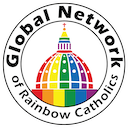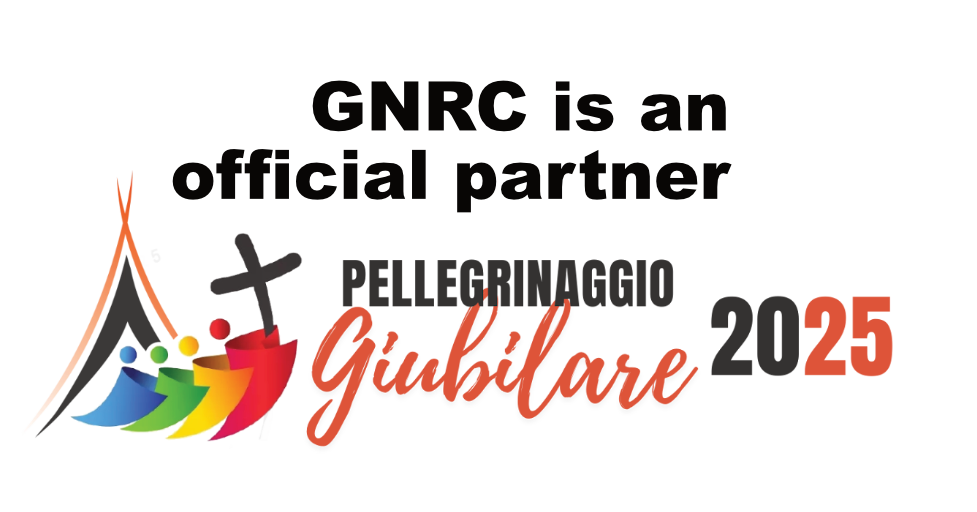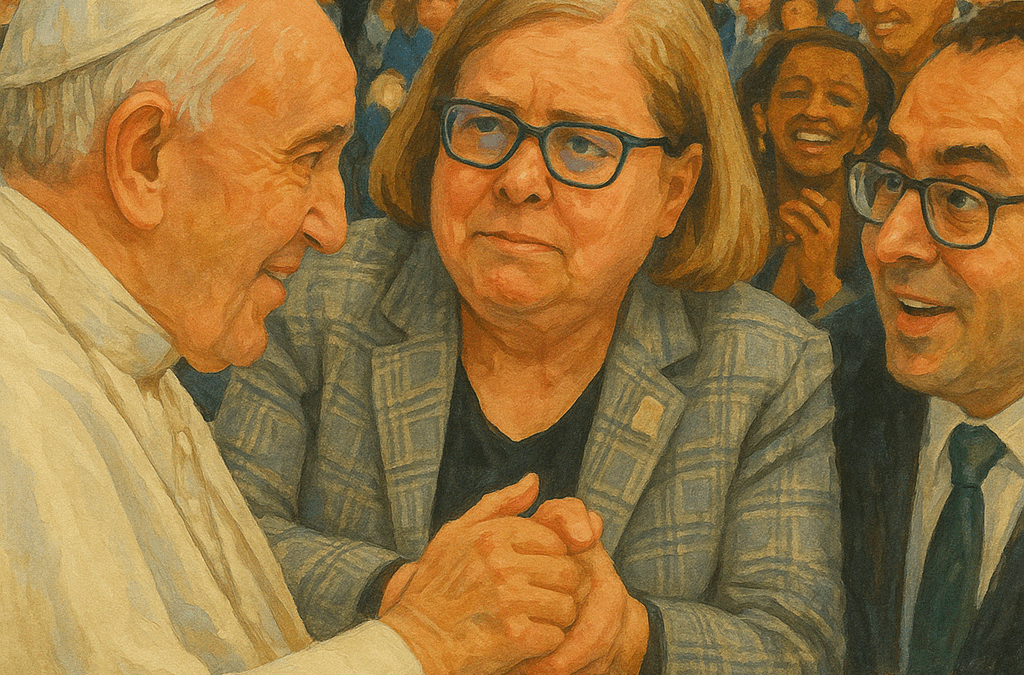“Who am I to judge?”
those words tell a long story on how Pope Francis shifted Catholic Church’s relationship with the LGBTQ+ community.
Marianne Duddy-Burke, Co-Chair of GNRC and Executive Director of DignityUSA, was invited to speak on Chris Jansing Reports on MSNBC; the interview, broadcast nationally, is itself proof of change. Twenty or thirty years ago, such an interview—nationally broadcast, positive, and openly affirming—would have been difficult to imagine.
In conversation with host Chris Jansing and professor Kathleen Sprows Cummings of Notre Dame University, Duddy-Burke reflected on the “transformative” impact of Pope Francis’ gestures and words.
“Pope Francis created an absolutely transformative atmosphere within the Church as it came to LGBTQ+ people and our families, by being willing to talk about us, by meeting us. He sent a sense of inclusion and visibility our people never felt in the Church before.”
Duddy-Burke was also asked to reflect on her meeting with Pope Francis—how precious that moment was, how much hope it inspired, and how deeply it resonated with LGBTQ+ people and their loved ones.
“Meeting the Pope was an important moment for me, for the organisations I represent, and for LGBTQ+ people and our family members, frontline ministers around the world who responded to that photo with incredible hope—for us to have been received by the Pope, to sit and talk with him, have him touch our hands, even hug. I never dreamt such an event would happen.”
That meeting happened thanks to the joint efforts of the Global Network of Rainbow Catholics (GNRC) and La Tenda di Gionata. This kind of synergy, mutual recognition, and institutional visibility, would have been unthinkable in past decades. And this public recognition is changing many lives.
“So many families have struggled with how to love their LGBTQ+ kids or siblings, or grandkids, and for decades tried to remain consistent with Church teaching. Many moved past that debate and chose love and acceptance, but it was a challenge. Pope Francis’ words helped bridge and heal so many families.”
“I remember a gay man whose grandparents had never met his partner, husband. Finally, after that, they welcomed the couple into their home. That is just one example of the transformation Pope Francis brought.”
The segment gave space to voices long ignored: those of LGBTQ+ believers and the ministers and relatives who support them. Duddy-Burke’s words—part of a broader interview now available here—offered a clear message: change is possible, and it has already begun.


